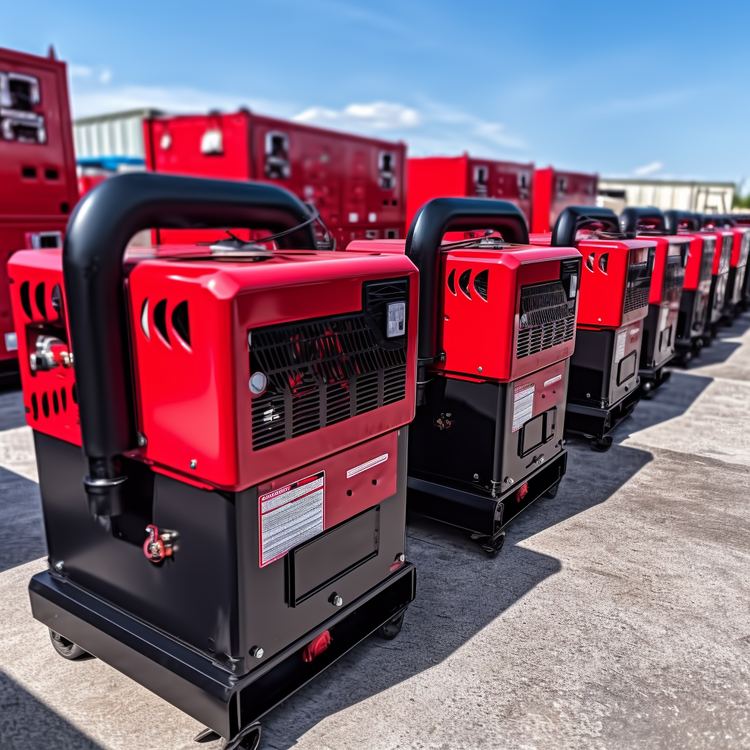Understanding Commercial Generators: Power Solutions for Business Continuity
Power generators provide essential backup electricity during outages, ensuring business operations continue uninterrupted. From diesel generators to battery backup systems, these power solutions offer reliability when traditional power sources fail. Understanding the different types, applications, and maintenance requirements of commercial generators is crucial for businesses seeking dependable emergency power options.

Power generators serve as critical infrastructure for businesses and organizations that cannot afford downtime during power outages. These robust machines convert various fuel sources into electrical energy, providing backup power when the main grid fails. Commercial generators range from portable units to permanent installations capable of powering entire facilities. With increasing power grid vulnerabilities due to extreme weather events and aging infrastructure, reliable backup power systems have become essential investments for business continuity planning.
How Do Commercial Diesel Generators Work?
Commercial diesel generators operate through a relatively straightforward process. The diesel engine serves as the prime mover, converting chemical energy from diesel fuel into mechanical energy through internal combustion. This mechanical energy turns an alternator that produces electrical power. Diesel generators are favored in commercial settings because diesel fuel has a higher energy density than many alternatives, providing more power per gallon.
The system includes several key components: the engine, alternator, fuel system, voltage regulator, cooling and exhaust systems, control panel, battery charger, and main assembly/housing. Modern diesel generators also feature sophisticated monitoring systems that can automatically detect power failures and initiate startup sequences within seconds of an outage, ensuring minimal disruption to operations.
What Types of Diesel Generators Are Available for Commercial Use?
Diesel generators come in various configurations to meet different commercial needs. Standby generators represent the most common type for businesses, designed to automatically activate during power outages and shut down when utility power returns. Prime power generators are engineered for continuous operation in locations without reliable grid access, such as remote industrial sites or construction projects.
Size classifications range from small portable units (20-60 kW) suitable for small businesses to massive industrial generators (500+ kW) capable of powering hospitals, data centers, or manufacturing facilities. Diesel generators can also be classified by their cooling systems (air-cooled or liquid-cooled), phase output (single-phase or three-phase), and enclosure type (open, sound-attenuated, or weatherproof).
What Advantages Do Commercial Battery Backup Systems Offer?
Commercial battery backup systems provide several distinct advantages compared to traditional fuel-based generators. These systems deliver instantaneous power without the startup delay typical of diesel generators, making them ideal for sensitive electronic equipment and data centers where even momentary power interruptions can cause significant issues.
Battery systems operate silently and produce zero emissions during use, making them suitable for indoor installations and environmentally sensitive areas. They also require significantly less maintenance than diesel generators, with no need for fuel storage, filter changes, or exhaust systems. Modern lithium-ion battery systems offer impressive energy density and can be scaled modularly to meet varying power requirements.
Many businesses implement hybrid solutions that combine battery backup systems for immediate response with diesel generators for extended outages, leveraging the strengths of both technologies for comprehensive power protection.
How to Choose the Right Commercial Generator for Your Business?
Selecting the appropriate commercial generator requires careful assessment of your power requirements. Begin by calculating your total power needs in kilowatts (kW), accounting for essential equipment, lighting, HVAC systems, and any critical infrastructure. Consider both starting wattage (the power needed to start motors and equipment) and running wattage (continuous power requirements).
Evaluate installation considerations such as available space, fuel storage capabilities, noise restrictions, and local permitting requirements. For businesses with multiple facilities or varying power needs, portable generators might provide flexibility, while permanent installations offer greater reliability and automatic operation.
Future growth should also factor into your decision—purchasing a generator with 20-25% additional capacity beyond current needs can accommodate business expansion without requiring a complete system replacement later.
What Are the Maintenance Requirements for Commercial Generators?
Regular maintenance is essential for ensuring generator reliability when needed most. Diesel generators require scheduled oil and filter changes, fuel system inspections, coolant checks, and battery testing. Most manufacturers recommend monthly test runs under load to verify operational readiness and prevent fuel degradation.
Commercial battery backup systems need regular capacity testing, connection inspections, and environmental monitoring. While they have fewer moving parts than diesel generators, battery systems still require professional inspection to ensure optimal performance and longevity.
For both systems, maintaining detailed service records is crucial for warranty compliance and operational reliability. Many businesses opt for maintenance contracts with qualified service providers to ensure their backup power systems remain in optimal condition through regular preventive maintenance.
Comparing Commercial Generators for Sale: Options and Pricing
When evaluating commercial generators for purchase, businesses must consider both upfront costs and long-term operational expenses. The market offers various options across different power outputs and fuel types.
| Generator Type | Power Range | Initial Cost Range | Estimated Lifespan | Maintenance Cost (Annual) |
|---|---|---|---|---|
| Commercial Diesel (Tier 4) | 50-150 kW | $20,000-$50,000 | 10,000-30,000 hours | $1,000-$3,000 |
| Commercial Diesel (Tier 4) | 200-500 kW | $50,000-$125,000 | 10,000-30,000 hours | $2,000-$5,000 |
| Natural Gas Generator | 50-150 kW | $25,000-$60,000 | 6,000-10,000 hours | $800-$2,500 |
| Commercial Battery System | 50-100 kWh | $40,000-$100,000 | 7-10 years | $500-$1,500 |
| Hybrid System (Diesel+Battery) | 100-200 kW | $60,000-$150,000 | 10-15 years | $1,500-$4,000 |
Prices, rates, or cost estimates mentioned in this article are based on the latest available information but may change over time. Independent research is advised before making financial decisions.
Diesel generators typically offer the lowest initial cost per kilowatt of capacity but require more frequent maintenance and fuel costs. Battery systems have higher upfront costs but significantly lower operational expenses and maintenance requirements. Many businesses find that total cost of ownership over a 10-year period tends to equalize between the different technologies.
Additional costs to consider include installation (typically 25-50% of the generator cost), fuel storage systems for diesel generators, automatic transfer switches, and ongoing maintenance contracts. Financing options including leasing and power purchase agreements are available from many major manufacturers and distributors.
Commercial power generation systems represent significant investments that require careful planning and consideration. The appropriate solution depends on your specific business needs, budget constraints, and operational requirements. By understanding the different types of commercial generators available, their applications, and maintenance needs, businesses can make informed decisions to ensure operational continuity during power disruptions.
Whether you choose a traditional diesel generator, a modern battery backup system, or a hybrid solution, implementing reliable backup power protection provides peace of mind and significant competitive advantage in an increasingly power-dependent business environment.




